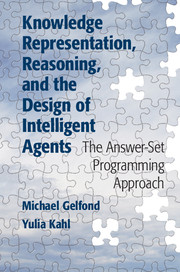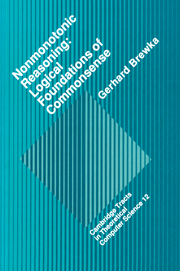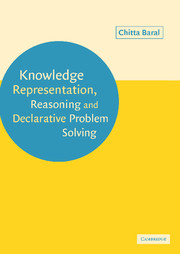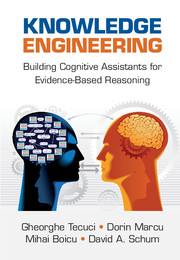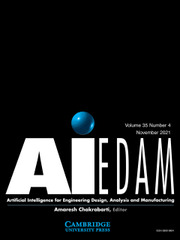Knowledge Representation, Reasoning, and the Design of Intelligent Agents
Knowledge representation and reasoning is the foundation of artificial intelligence, declarative programming, and the design of knowledge-intensive software systems capable of performing intelligent tasks. Using logical and probabilistic formalisms based on answer set programming (ASP) and action languages, this book shows how knowledge-intensive systems can be given knowledge about the world and how it can be used to solve non-trivial computational problems. The authors maintain a balance between mathematical analysis and practical design of intelligent agents. All the concepts, such as answering queries, planning, diagnostics, and probabilistic reasoning, are illustrated by programs of ASP. The text can be used for AI-related undergraduate and graduate classes and by researchers who would like to learn more about ASP and knowledge representation.
- In depth but highly accessible to the student audience
- Covers both theory and practice, with implementations
- Exercises, examples, historical notes
Reviews & endorsements
'An excellent text for both students and experts in answer-set programming and knowledge representation.' Chitta Baral, Arizona State University
'Michael Gelfond is one of the creators of answer-set programming, a new programming methodology based on artificial intelligence that has already found several important applications. I am extremely impressed by the clarity of thought and examples provided. The authors are to be congratulated on this excellent addition to the literature.' Vladimir Lifschitz, University of Texas, Austin
Product details
March 2014Hardback
9781107029569
360 pages
235 × 157 × 23 mm
0.61kg
25 b/w illus. 3 tables 97 exercises
Available
Table of Contents
- 1. Logic-based approach to agent design
- 2. Answer set Prolog (ASP)
- 3. Roots of ASP
- 4. Creating a knowledge base
- 5. Representing defaults
- 6. The answer set programming paradigm
- 7. Algorithms for computing answer sets
- 8. Modeling dynamic domains
- 9. Planning agents
- 10. Diagnostic agents
- 11. Probabilistic reasoning
- 12. The Prolog programming language.

